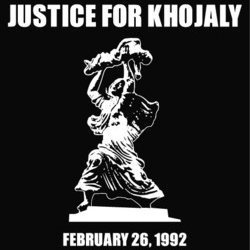Azerbaijan, Baku, Feb. 16 /Trend, E.Ostapenko/
Jon Tester, a member of US Senate from the Montana State, has replied to the letter from Thomas Goltz, professor at Montana University, regarding massacre in Khojali in 1992.
Senator Tester expresses his gratitude to professor Goltz for raising the memories of those tragic events committed 19 years ago, when so many Azerbaijani people were killed.
"I appreciate your thoughts and concerns about this important matter," Tester said in his letter. "Recognizing and acknowledging terrible events is the first step towards understanding why they were committed and how to prevent future atrocities".
He added that if this issue comes before the Senate, he will keep Goltz's views on mind.
Earlier another US Senate member, Max Baucus, also replied to professor Goltz's letter where he provided his views on Khojali tragedy. Senator Baucus also thanked Goltz and promised to follow closely the issues that were raised in the message.
Armenian military forces committed genocide acts in the town of Khojali of Azerbaijan, with the population of 7,000 people, on Feb. 26 1992. There were 3,000 people in the town at the time of attack.
As a result more than 600 people were killed, including 63 children, 106 women and 70 old men. 1,000 peaceful people of different age became physically disabled during Khojali genocide. 8 families were completely annihilated, 130 children lost one parents, while 25 lost both of them. 1,275 peace residents were taken hostages, while the fate of 150 of them is still unknown.
The conflict between the two South Caucasus countries began in 1988 when Armenia made territorial claims against Azerbaijan. Armenian armed forces have occupied 20 percent of Azerbaijan since 1992, including the Nagorno-Karabakhregion and 7 surrounding districts. The parties have been staying in the regime of a ceasefire agreement since 1994, however armed incidents happen on the contact line from time to time.
Armeniahas not yet implemented the U.N. Security Council's four resolutions on the liberation of the Nagorno-Karabakh region and the occupied territories.






